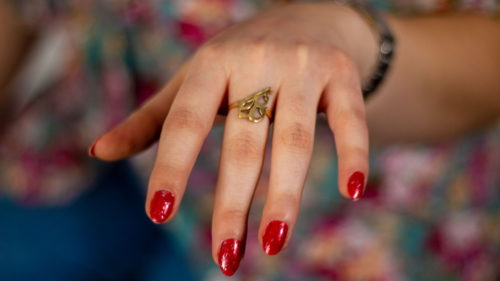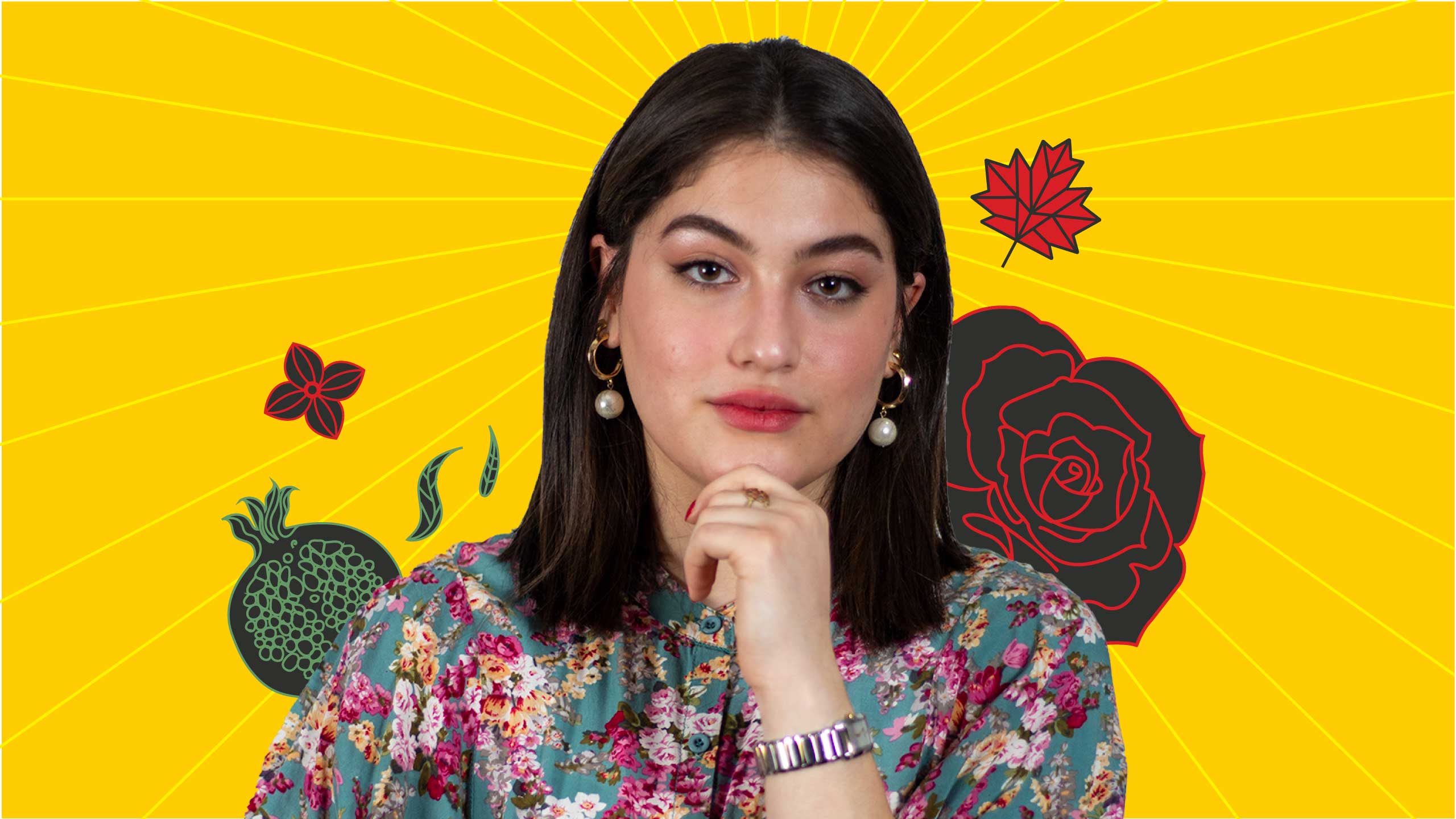“Here in Toronto, I get to have the best of both worlds: living freely and learning from the richness of my culture.”
By Negin Khodayari
As a child of immigrants, I’ve spent years trying to learn about where I’m from. I was born and raised here in Toronto. Almost every Saturday for 10 years, I sat in a Farsi school classroom studying Iranian literature, memorizing Hafez, indulging myself in my beautiful culture—and I love it. Over the years I have always gravitated towards people who share my lived experience, though there aren’t very many of us.
But I’ve often found myself torn between two homes—neither of which I can fully call my own. I’ve been caught in conversations where I realize this dichotomy. I frequently have to explain to my friends why I go home so early in the evening and why I’m not allowed to sleep over. Every year on Nowruz, the first day of spring, I’m bombarded with messages as to why I’m missing school, and I have to explain I’m celebrating my new year (my favourite holiday).
Sometimes I struggle to fully express my feelings because I simply can’t find the right words to accurately translate my mother tongue.
While I struggle with these kinds of experiences, for years the people in Iran have had struggles of their own. From an eight-year war during the 1980s with Iraq, to when the U.S. government imposed oil and trade sanctions on the country—the struggles are countless. Over the years, numerous protests have ended with nothing changed and innocent lives lost—the most recent one being only two months ago in November 2019. Now, new protests are rising across Iran as a result of the downing of a civilian plane in Tehran, carrying 176 passengers, including 57 Canadian citizens, leaving no survivors.
My first recollection of protests in Iran was when I was nine years old. It was 2009 and I had just come home from school. My dad was watching the news on our Iranian satellite. They had cancelled schools indefinitely because of rising violence in the streets of Tehran. That day, and for many days to come, I didn’t complain about going to school.
Here in Toronto, I get to have the best of both worlds: living freely and learning from the richness of my culture. I don’t have to worry about school getting cancelled because of public safety. Everyday I wake up and get to wear what I want, be friends with who I want and express myself without being punished for it. On weekends, I get to go to concerts, sing my heart out in arenas filled with thousands of people and dance in the parking lot to the sound of my car stereo blasting through the windows.
But while I’m here indulging in the sweetest fruits life has to offer, my people back home are struggling to afford them.
I have always been proud to be Iranian, showing it off like it was my greatest quality. I had never felt directly attacked by racist comments—and I acknowledge my privilege in that—but things have changed. With the recent rising tensions between the Iranian and American governments, the guilt of living safely in a country far away is stronger now.
It’s hard to open social media without drowning in headlines and breaking news, each update more painful than the last. The comments underneath all the stories are the hardest of all: “You savages go back to your country and get the fuck out of here.” “You vicious animals deserve to die.” “All these sand rats will be dead soon.” The list goes on.
I am no longer so quick to announce where I’m from. That courage isn’t as easy to find anymore, my pride has turned into fear and I bite my tongue before I speak in anything that doesn’t sound like English. I’ve never been scared of the future, but now, I am terrified.

For 20 years I have grappled with the question of my true identity. It seems the older I get the more unclear my answers are, and I’m okay with that. Sometimes I find myself wishing I didn’t care this much and could just forget about my roots and where my family came from, but that’s not who I am. I owe a lot of that to my parents. They showed me that I don’t have to be just one thing, that I can learn from both cultures, love them equally and choose the parts of both cultures I wanted to keep.
I’ve accepted my unique position as a second-generation Canadian that not many people share. As I’m the first in my family to be born here, I’ve learned to accept the different experiences I will never have in common with them. I learned to swallow the guilt that follows me everywhere, caused by the reality that I can turn it off. If I ever need to be “just Canadian,” I can be, because I get to choose which identity I share with others.
The fear of hiding who I am in the current climate will not last forever, but it’s hard to see an end to it right now. Slowly, I will find my voice again. I’ll remember the beautiful position I have to be more than just one thing.













Kev
What an excellent article. You summarized what it feels for many immigrant. Sometimes I still get the you’re not ” insert-your-nationality-here ” enough from people in my own culture and yet Caucasian Canadians don’t think we are Canadian enough due to our skin colour.
Tiffany
Thank you for this beautifully-written article! I’m missing home as well and resonate with what you say about “being Canadian” when I want to be. Your words reminded me to treasure the opportunity that my family has given me to live in Canada.